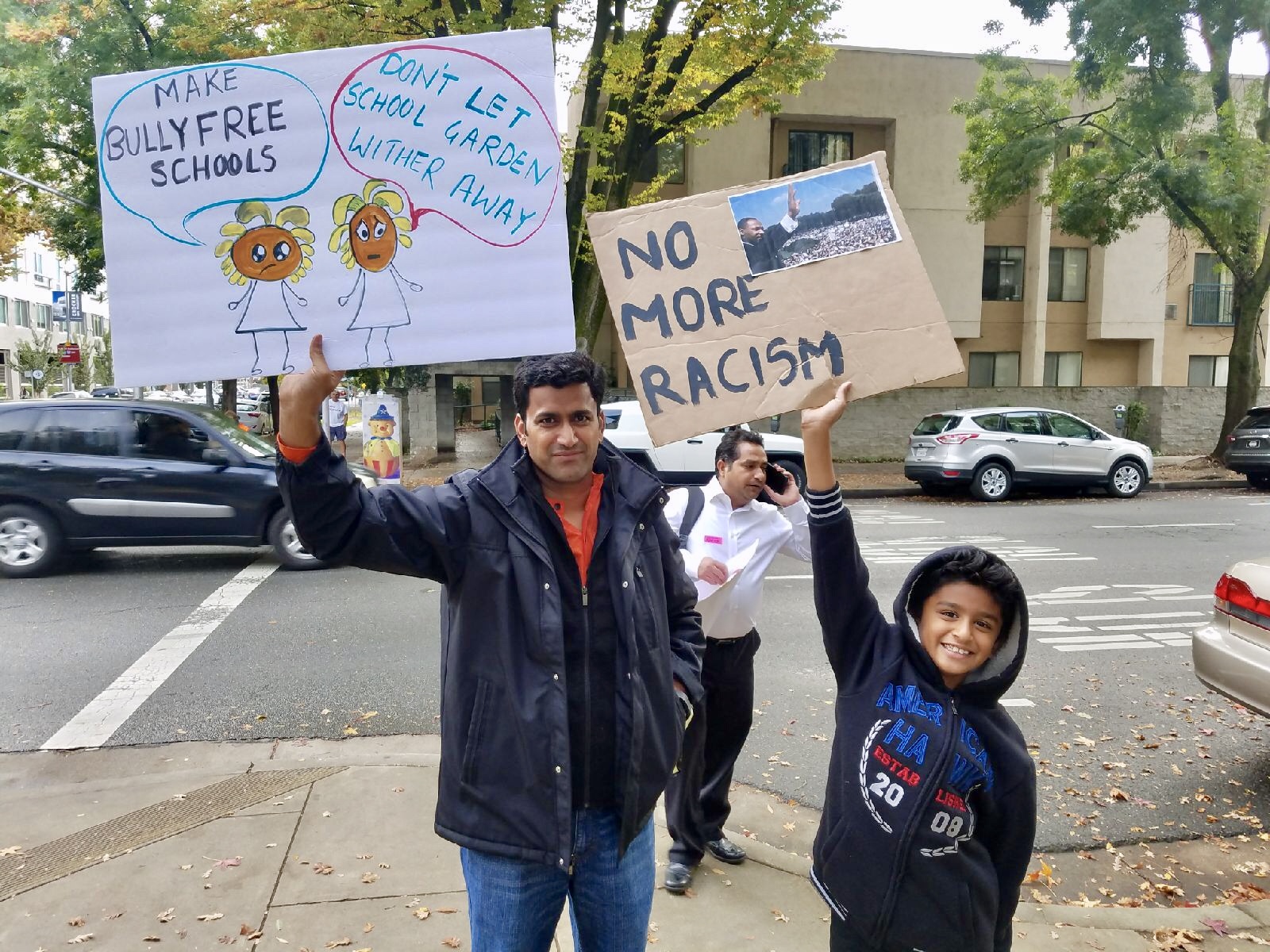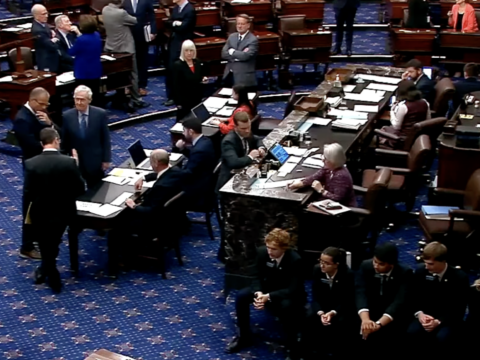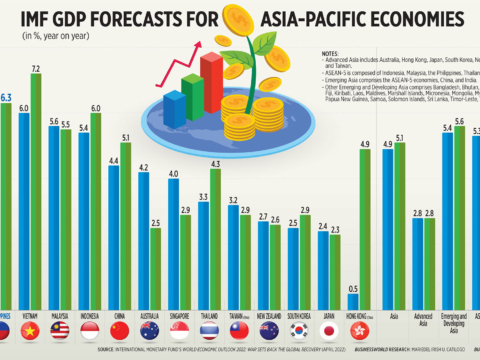SACRAMENTO, Calif. (Diya TV) — The pursuit of accurate and equitable representation of Hindus in California textbooks began over a decade ago. Hundreds of Hindu Americans, some Jains, Sikhs, Muslims and Dalits descended upon the State’s capital of Sacramento to voice their respective concerns on the depiction of Hinduism in History and Social Sciences textbooks. The fight that began in earnest in 2006 came down to the final public hearing with respect to the adoption of the new framework, today. State Superintendent of Public Instruction Tom Tolarkson along with other members of the State Board of Education heard from publishers who came to defend their edits, parents, students and teachers.
In 2012 when Diya TV spoke to the Hindu American Foundation(HAF) about their work on California textbooks, Samir Kalra then Senior Fellow of Human Rights at HAF said, “We started hearing from concerned parents asking us to help”. When they tried to address these concerns, HAF realized that they were being denied due process, so they sued the California Department of Education and won.
Over the years, that led to the work of HAF with the Instructional Quality Commission, or the IQC, formerly known as the Curriculum Development and Supplemental Materials Commission, which was first established in 1927 as an advisory body to the State Board of Education (SBE)
https://www.facebook.com/DiyaTVusa/videos/10155849327783252/
The scene outside the California Department of Education on November 10th, 2017 on the morning of the final public hearing in the matter of History and Social Sciences California textbook adoption.
In 2014, HAF worked with public officials and community members to get the issue in front of the California State Senate and Assembly to change the State’s content standards for textbooks. Both the Senate and the Assembly approved it, but Gov. Jerry Brown vetoed the bill, despite overwhelming and bipartisan support from legislators and from a coalition of more than 100 educators, diverse community and education groups, and government leaders.
With no luck in changing content standards, in the fall of 2014, HAF along with the support of the Hindu American community and over 100 organizations took on the next step of working with the state’s curriculum framework revision process, to seek what they describe as a more inclusive set of guidelines for teaching about diverse religions like Hinduism and diverse communities like Indian Americans.
During this time, the California textbooks story had received some attention in the media. Groups of scholars submitted their recommendations disagreeing about certain key issues.
By spring of 2016, the IQC was getting ready to make recommendations on the framework, which if approved by the State Board of Education (SBE) would be adopted for the next decade. For HAF and majority of the Hindu parents and students involved in the process this was problematic. They didn’t want the narratives drawn from the state’s outdated content standards which depicted Hindus in negative and grossly inaccurate ways, to remain in California textbooks.
The big hearing was set for May 19th, 2016.
By summer of 2016, the story picked up steam, from local news stations in the Bay Area, to the New York Times, and ofcourse Diya TV, this story was now gaining national attention.
Enter, South Asian Histories for All (SAHFA) , a group that disagrees with the edits proposed by the Hindu American Foundation and the Uberoi Foundation, characterizing them as inaccurate and Hindu nationalist. Nearly 4,500 people signed a public petition standing with SAHFA. Over 200 California parents signed on to a letter of support. More than 75 California K-12 school educators signed a letter from educators. Students from 30 California universities signed on to a student letter. Scholars from 80 universities signed on to a letter in support of the edits submitted by the South Asia Faculty Group.
In support of SAHFA, some Sikh and Muslim groups came to voice their concerns, stating that the edits proposed by the HAF are inaccurate. Specifically, the characterization of caste. Therein lied the crux of the disagreement.
Neither group disagreed about the existence of the caste system, or its oppressive nature. Diya TV was present at the May 19th hearing and managed to get both sides, Anirvan Chatterjee from SAHFA & Samir Kalra from HAF to engage with us in a pre-hearing debate:
For an in-depth read into the scholars that each group referred to in this video, read our article, here.
HAF argued that although the ‘caste system’ as it is called today, is part of Hindu religion, its not a Hindu term, but a Portuguese term that we now use to refer what the Hindus understand to be a combination of two classifications, ‘Jati’ & ‘Varna’. Jati refers to the classification you are born in and Varna refers to one’s natural propensity. Hindus cited examples of sages and authors such as ‘Valmiki’ and ‘Vyasa’ and how they, even though born in lower jatis were able to move upwards due to their natural propensities and became widely revered by Hindus as the authors of the great epics such as ‘Ramayana‘ & ‘Mahabharata‘, thereby suggesting that social mobility across caste lines was possible and the Hindu religion’s social structure of Jati and Varna weren’t inherently oppressive in nature.
To which SAHFA’s Thenmozhi Soundararajan countered,
“There is no way that one would self-govern yourself into oppression,”
during the public comment of the hearing. Over a 100 volunteers of SAHFA cited numerous examples of oppression, faced by generations due to the caste system. Denouncing terms such as ‘untouchables’ or ‘lower-caste’, SAHFA urged the IQC to install the word ‘Dalit’, instead.
The arguments continued in the public comment period as each group argued the other by organizing and scripting counters to what was being said. SAHFA accused the Hindu groups of attempting to revise history and the Hindu groups, led mostly by HAF insisted it was doing no such thing.
There were many other points of contention, a big one was the use of terms ‘India’ or ‘South Asia’
SAHFA argued the term ‘India’ is inaccurate and should be replaced by ‘South Asia’, stating that India became a sovereign state only after the British left and divided the region into India, Pakistan & Bangladesh (then West Pakistan). Moreover, the Indus Valley civilization, which now falls under modern-day Pakistan, be noted as the collective heritage of South Asia.
Hindu groups disagreed. According to them, learning about ‘Ancient India’ should not be confused by modern day “geo-political” terms such as South Asia. They cited numerous examples showing that pre-1947, the region was referred to as ‘India’ or some derivative of that word. One of the public comments asked of the IQC, how did Columbus mistakenly find ‘India’ in the 1400s if that wasn’t a term for the nation till 1947?
Some Hindu Americans argued, by saying “its no different than referring to the Greek Civilization or the Chinese Civilization, these regions today are not exactly what they were during ancient times, but we still refer to them by their ancient names.”
The debate had now become polarized. By June 2016, the revised draft of the curriculum was released on the CDE’s website.
Both sides were now submitting papers, edits and additional research to support their narrative.
SAHFA sent three submissions: SAHFA letter, July 7, 2016; Muslim community organization letter, July 7, 2016; Muslim Studies Faculty letter, July 5, 2016
In addition to the four academic letters by professors of religion and history as signatories or lead authors, HAF made eight submissions. from 2014 leading up to the fall of 2016.
They also released a Bullying report in 2016 entitled Bullying and Bias Against Hindu Students in American Schools. It found one in three Hindu American students reported being bullied because of their religious beliefs, due in part to textbook content.
On September 28, 2017 the IQC rejected Houghton Mifflin Harcourt: Kids Discover California Social Studies (K-6) and Houghton Mifflin Harcourt: Social Studies for California (6-8) draft textbooks.
On October 8th and 9th of 2017, the IQC held its final public hearing to discuss draft edits with the textbook publishers, before they would make their final recommendations to the State Board in November. This time even though the hearing was split into two days, hundreds of Hindu parents and students travelled from across the state. Professors and scholars who had authored papers in support of Hindu Americans also spoke at the public hearing.
SAHFA and its volunteers did not show up.
In early November, HAF worked to get support from several public officials across the nation and across party lines.
The morning of November 9th 2017, hundreds of Hindu Americans, parents, students, scholars and teachers lined up early morning outside the California Department of Education and this time, so did the volunteers of SAHFA.
Members of several racial minorities and groups came out in support of Hindu Americans. Glenn Fujii National Executive Director of APAPA said to the SBE, “I am here today to support our Hindu and Indian American communities. We really urge you to reject these two textbooks (K-8) from HMH who really disrespect and inappropriately represent the Hindu American community.”
Asian American business owner, and APAPA board member Mary Yin Liu said, “Much groundwork has been laid before today. In good faith and with due diligence the community has reached out to many book publishers, most have made the simple updates and accommodations, however we are appalled and disappointed to see the disparity remain with these three publishers and we ask that they treat the races and countries and religions equally for all and not just a few” referring to HMH, McGraw Hill and National Geographic.
SAHFA volunteers argued passionately, that caste is part of Hinduism and the effects of which are still alive and well in modern-day India. Some citied instances of violence and abuse faced by Dalits in India while others drew parallels between slavery and the caste System.
Barnali Ghosh from SAHFA entreated the SBE, “Textbooks should be based on the best scholarship, they should be respectful and nuanced and they shouldn’t whitewash the truth, or promote alternative facts. That’s why we have come together against the Hindu lobby pushing against Islamophobia, caste denial and religious nationalism in our textbooks.”
A Sacramento attorney, Amar Shergill who is a board member of the Sacramento Sikh Temple and an executive board member of the California Democratic Party, said to the SBE to “be very careful about overturning previous decisions of the board in a way that provides unequal, disparate treatment to a specific group that’s lobbying you. You might open yourself up to litigation.” He added on behalf of SAHFA, “We should have empathy for the Hindu community, its not their fault that they are Americans now and beneficiaries of the oppressive South Asian culture.”
Sikh American Legal Defense & Education Fund (SALDEF) Co-Founder Dr. Jaideep Singh spoke in support of SAHFA and said “The reason we have Nazis marching in Charlottesville is because of the lack of courage we have in telling the truth about who we are. The same problem is occurring right here. Yes, our history with caste is very ugly, but that doesn’t mean we should erase it.”
Mala Frank-Gavin, a retired school teacher from Roland Heights Unified School District reminded the board of the importance of accuracy, “Since these textbooks will be used for 10 years, it is crucial to give students accurate information. If they are given anything inaccurate, they tend to doubt anything you try and teach them”
Shivangi Singh, a junior from Evergreen Valley High School in San Jose told the board that she had come to speak two years ago and was disappointed that not much had changed in the textbooks since. Singh added “I am a firm believer in the idea that education should be unbiased and you should have both the good and the bad portrayed through out the textbooks for the education to be truly unbiased. But I’d also like to remind you that every single religion has skeletons in their closet, but not every single religion is being portrayed the same. Every other religion has been given a fair chance and we haven’t been.”
After the public comments, Natasha Martin from the Teachers Curriculum Institute (TCI) testified before the board that they had collected and reviewed over 10,000 pages of comments from concerned citizens, groups, scholars, academicians and publishers and made its recommendations to the SBE. Rejecting two drafts of textbooks from Houghton Mifflin Harcourt(HMH) and proposing serveral edits to the McGraw Hill & National Geographic drafts among others. The California Department of Education(CDE), after this final hearing decided on the edits and corrections as recommended by the IQC.
When the Board President Mike Kirst declared the public hearing closed after nearly 500 people spoke, he said
“That was the longest in the history of the state Board of Education.”
The CDE says it won’t add any of the books to the list of adopted instruction materials unless all the edits recommended by the CDE have been made by the textbook publishers. The publishers have 60 days to make the suggested edits and updates.
“I feel the California Department of Education and thousands of members of the public have really made a profound and positive difference in the materials,” said board member Nicki Sandoval, who served as a liaison to the review process, along with Board Member Patricia Rucker. “Stakeholders, thank you for using your strong and loud voices, which informed the process, and your agile minds” to ensure “we’re fulfilling our responsibility to provide materials that are inclusive, accurate and respectful” and that will “help to build key understandings for young people” and ultimately to improve school climate and “foster a stronger sense of social responsibility.”
Samir Kalra, Senior Director at Hindu American Foundation seemed relieved as he spoke to Diya TV moments after the conclusion of the hearing
“A decade plus years of long time struggle for the Hindu American community, children, parents, community members all coming together to fight for equality, and dignity in textbooks, but today we emerge victorious and we are very appreciative of the work of the IQC and the State Board of Education in rejecting two of the worsts drafts from Houghton Mifflin Harcourt.”
Responding to the allegations from the supporters of SAHFA, about the modern-day realities of oppression due to the caste system still prevalent in India and the attempt to erase caste, Kalra said, “Across the textbooks drafts, caste currently comprises of almost 30% of the material. Nobody was attempting to erase that.” Kalra added, “Hinduism should not be inherently linked to caste, because the Hindu scriptures at their base, do not promote caste based discrimination.”




